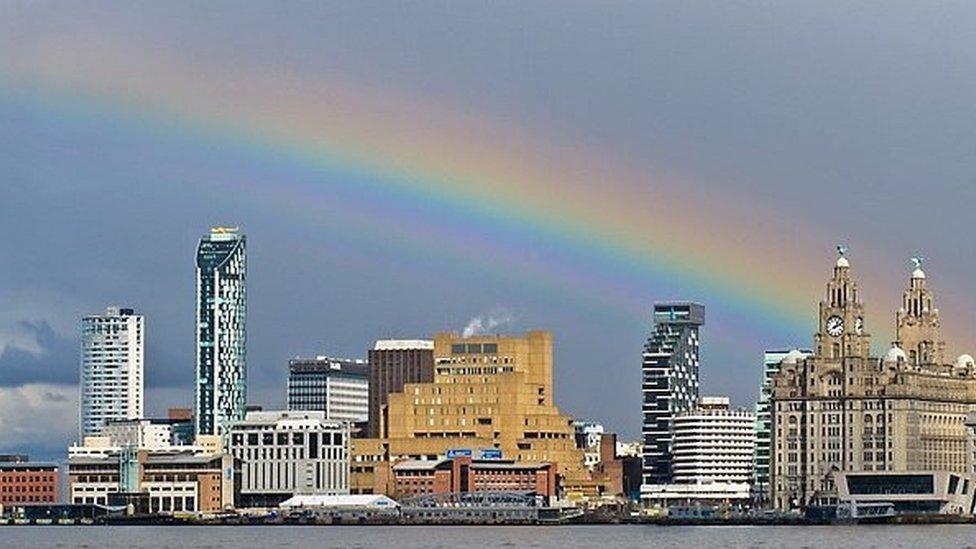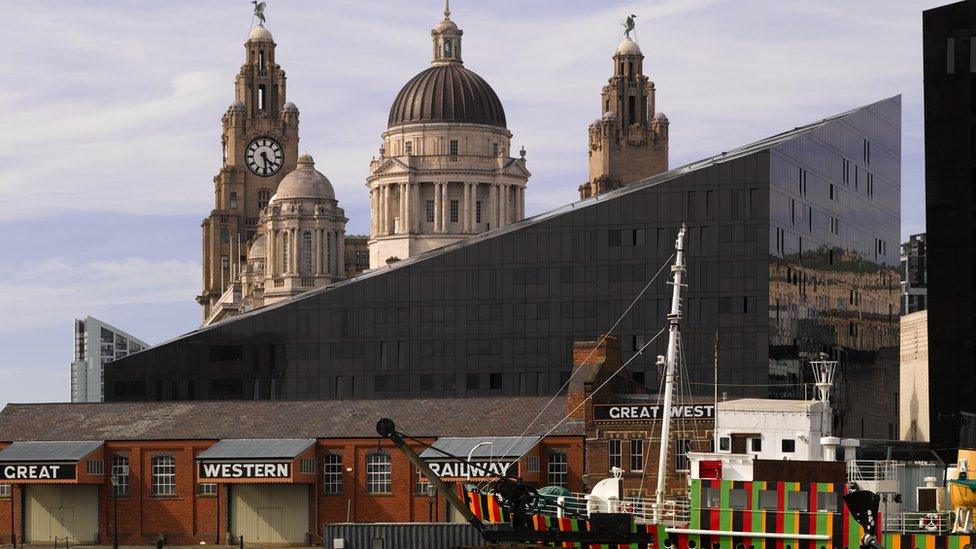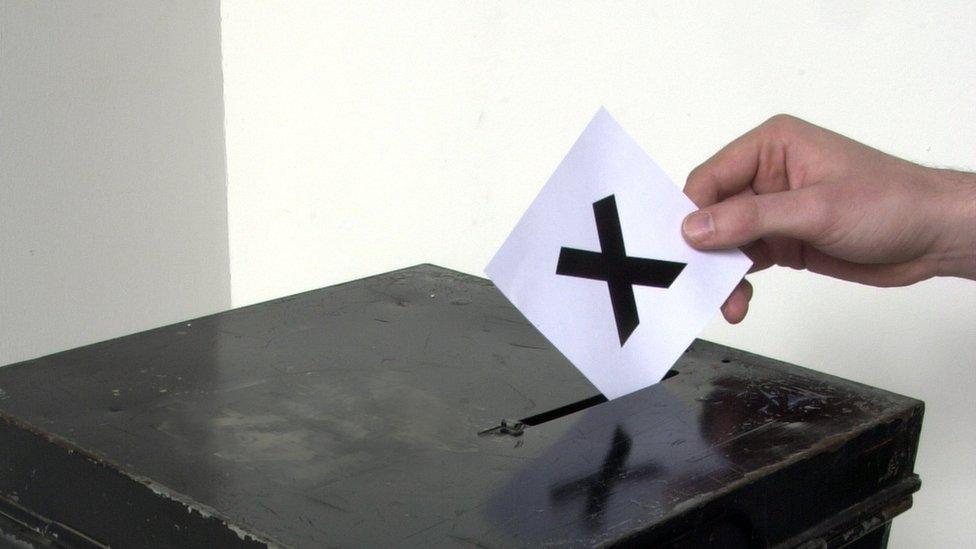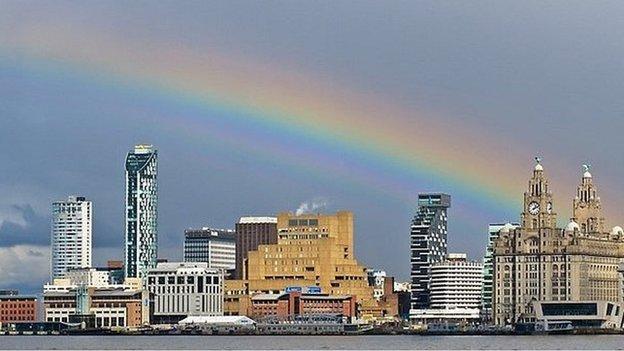Liverpool City Region mayoral election: How big a deal is it?
- Published

The new mayor will be elected as figurehead of the Liverpool City Region in May
In the minds of many Scousers, they already have a mayor.
"Do you mean Big Joe?" asks one woman in Liverpool city centre when I ask about the Liverpool City Region's mayoral election on 4 May.
While Joe Anderson is mayor of the city of Liverpool, there are five other boroughs in this newly created region - Knowsley, Sefton, St Helens and Wirral in Merseyside, plus Halton in neighbouring Cheshire.
And Mr Anderson was beaten by Steve Rotheram last August in the battle to be selected as Labour's candidate in the Liverpool City Region's mayoral election.
The "Liverpool City Region" does not have a long-established political history - even choosing its name was not problem-free.
Now that a devolution deal has been thrashed out, though, what will her or his powers be?
The mayor will have significant powers over transport, which could transform the lives of the 1.5 million people who live there by redesigning bus routes and offering integrated ticketing systems.
He or she will also be in charge of housing, which many argue is desperate for root-and-branch reform.

Liverpool City Region's Mayoral Election Candidates (listed in alphabetical order)
Roger Bannister - Trade Unionist & Socialist Coalition
Paul Breen - Get the Coppers off the Jury
Tony Caldeira - Conservative
Carl Cashman - Liberal Democrat
Tom Crone - Green Party
Tabitha Morton - Women's Equality Party
Steve Rotheram - Labour
Paula Walters - UKIP
Find out more about the candidates - and their key manifesto commitments
Local authorities included in the mayoral region: Halton, Knowsley, Liverpool, St Helens, Sefton, and Wirral

Along with the leaders of the six boroughs, and the Local Enterprise Partnership (LEP), the mayor will be part of the combined authority, which will also take control of training and skills, and consider how to best invest £900m over the next 30 years.
This isn't the comprehensive and detailed deal they have down the Mersey in Greater Manchester.
Liverpool City Region has not secured control over policing and fire and rescue, for example, and are only "working on" a deal for health and social care devolution.
In the wording of the deal, it's also notable that in many areas Liverpool City Region will "work with" central government rather than be "free from" Whitehall.
There are big issues around governance too.
I'm told the constitution - which will decide how policies are passed - won't be fully ironed out until the mayor is elected.
Is it fair to send the voters to the polls without that clarity?
Also the Local Enterprise Partnership will get to vote on whether certain policies pass. Again, is it right that a non-elected body can do that?
'Fascinating few years ahead'
Despite not having the depth and the history of the Greater Manchester deal, though, I have found a level of public engagement in the mayoral race.
One young mum in the south of the city told me: "You need to know Liverpool to control it."
Merseyside's sense of identity is arguably almost unrivalled in the UK, and that could play out well for whoever becomes mayor on 5 May once the votes are tallied.
There is also an economic optimism intertwined with devolution.
The opening page of this devolution deal talks about commercial ventures including Superport, 3MG in Halton, and science and innovation strengths at Daresbury.
These may be jargony phrases to the majority of the 1.5 million who live here, but companies like Peel Holdings don't invest £400m without expecting a decent return.
There is also growing support at Westminster. Liverpool Riverside MP Louise Ellman has been a strong voice in making sure the Buses Bill (part of devolution) delivers all that it promises.
The combined authority tells me that once its mayor is in place, it will start lobbying Whitehall for even more powers.
Merseysiders are known for a determination to get what they want, so we can expect a fascinating few years ahead.
- Published5 April 2017

- Published5 April 2017

- Published3 February 2017

- Published9 December 2016
